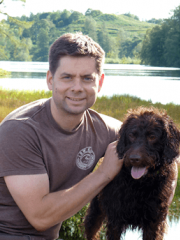Dr Hawthorne Beyer

Researcher biography
After postdoctoral research with the Possingham Lab, I joined the Global Change Institute at The University of Queensland in 2017.
My research is at the interface between people and the environment, more specifically how biological systems are impacted by humans and the implications of this for management of both environmental and social systems. My applied research promotes evidence-based management using quantitative modelling and operations research methods to develop spatially explicit decision support systems for better managing environmental systems. Hence my work is at the forefront of the link between geospatial science, systems modelling and decision theory. I have applied this approach to a variety of environmental management problems including fire planning, zoning plans, wildlife disease management, landscape scale forest restoration and protected area prioritisation.
My principal current and near-term future research interests are: (i) robust, global-scale coral reef conservation planning in the context of uncertainty arising from climate change; (ii) prescribed fire management planning in Australia to maximise multiple objectives; and (iii) large scale forest restoration planning in Brazil to maximise biodiversity and carbon returns and inform the creation of national offset markets. All three of these themes involve the development of novel, evidence-based, quantitative approaches to management and decision support.
